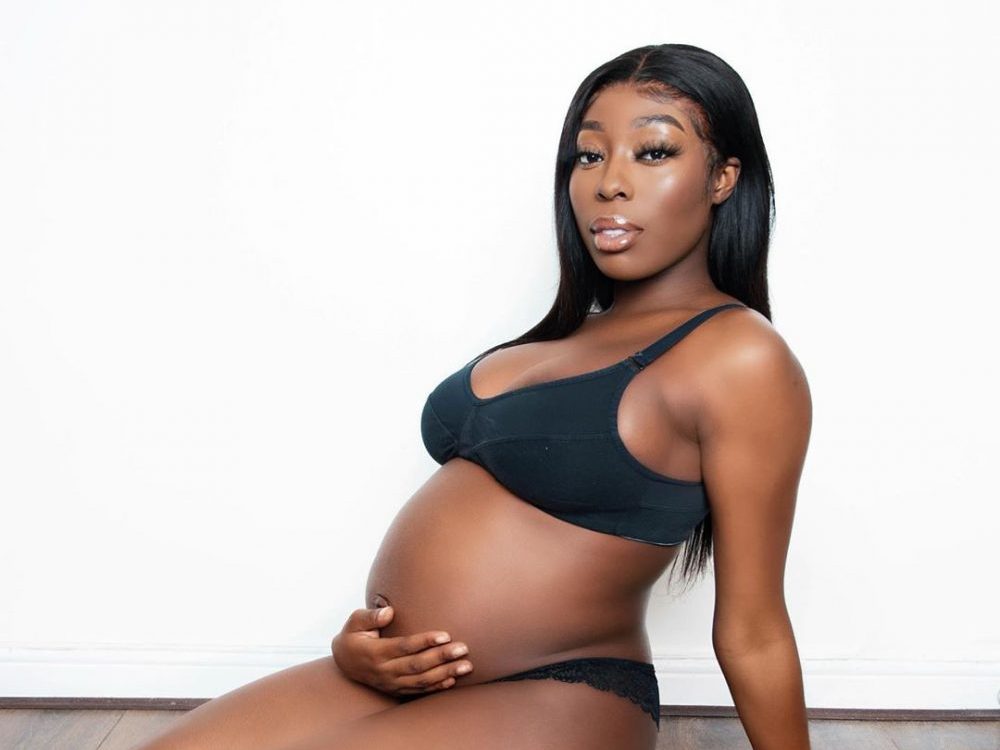YouTuber and influencer Nicole Thea died on July 11 in her London home at the age of 24, along with her unborn son, Reign. She was eight months pregnant and left behind her partner, Boga, who is a London-based dancer.
Thea first announced her impending motherhood in April and posted often about her pregnancy. Boga similarly frequently posted content related to their growing family. Thea’s family has requested privacy during this difficult time, but Boga will release Thea’s final pre-recorded videos.
Thea’s family believes she died of a heart attack as she reportedly experienced chest and back pain before dying. However, Thea had no known preexisting conditions that would have caused a heart attack.
Thea was Black, which may have contributed to her death. Black pregnant women and mothers die over three times more often than their white counterparts. Why is this? The answer is not simple, but it boils down to racial bias in the medical field, particularly bias against Black women.
Researchers and medical professionals are beginning to recognize this bias, yet it still persists. “The racial disparity has persisted, even grown, for years despite frequent calls to improve access to medical care for women of color,” Roni Caryn Rabin wrote in The New York Times.
“Sixty percent of all pregnancy-related deaths can be prevented with better health care, communication and support, as well as access to stable housing and transportation.” It’s alarming that over half of pregnancy-related deaths are preventable and are contingent on factors such as wealth and location. Predominantly white areas are more likely to have better health care.
Erika Stallings wrote in O magazine: “A black person who lives in a segregated community and undergoes surgery is more likely to do so at a hospital with higher mortality rates; facilities in such communities are often lacking in resources compared with those in primarily white areas.” One factor in Black maternal mortality could be quality of care in hospitals, according to Stallings’ data. If pregnant white women have better access to health care than pregnant Black women, it makes sense that they would die of complications less often.
Poor quality health care can lead to pregnant Black women dying of diseases that medical professionals fail to diagnose. “Cardiac disease, which disproportionately affects black women, may be present in a woman before pregnancy, but it also may appear during pregnancy,” Rabin wrote. “If heart disease goes undetected, it may become acute after the baby is born.”
This could explain Thea’s death. If her doctor failed to screen for cardiac disease throughout her pregnancy, her condition could have worsened until it led to a heart attack. This concern applies to pregnant Black women everywhere. If they don’t have access to quality healthcare, dangerous diseases or conditions go undiagnosed, which can lead to a disproportionately higher mortality rate for Black mothers.
The injustice doesn’t stop there. According to Stallings, only 6% of doctors are Black, compared to the 13% of the U.S. population that is Black. There is an alarming lack of Black people in health care, which leads to concerning and false beliefs about Black health.
Researchers at University of Virginia looked into why Black Americans received less treatment for pain, which led to the discovery that many medical students and residents believe in “wildly erroneous” differences between Black and white bodies.
For example, some believe that Black skin is thicker than white skin or Black nerve endings are less sensitive than white nerve endings. Obviously, neither of these claims are true and have led to medical professionals failing to properly treat Black people in their care.
While these are aggressive examples of racial bias in the medical field, there are also more subtle influences of racism in health care. Even the influence of technology continues the pervasiveness of racial bias.
Heidi Ledford wrote in Nature magazine of one particular algorithm that allocated medical care: “The study, published in Science on 24 October 1, concluded that the algorithm was less likely to refer black people than white people who were equally sick to programmes that aim to improve care for patients with complex medical needs.” The algorithm promoted the needs of white patients over Black patients, even though the same study found that Black patients were on average sicker.
Why are Black patients sicker to begin with? That has to do with the impact of racism too. Stallings explains the idea of “weathering,” which is the idea that “over time, the toxic stress of dealing with discrimination (stress that has been found to result in increased cortisol levels and inflammation) leads to poorer health outcomes—as well as premature aging, since it can literally shorten our telomeres, the protective caps at the end of each of our chromosomes.”
The stress of living in a racist society physically affects Black people. White people don’t feel this stress and therefore avoid the negative health effects of weathering. Coupled with the failure of the American health care system to address racial bias, weathering has a starkly negative impact on Black Americans and contributes to the medical field failing them.
The history of the medicine, particularly gynecology and obstetrics, also helps provide context for the mortality rate of Black mothers. J. Marion Sims, considered by many to be the “father of modern gynecology,” practiced his craft on enslaved Black women.
Sarah Zhang wrote in The Atlantic,“Sims practiced the surgical techniques that made him famous on enslaved women: Lucy, Anarcha, Betsey, and the unknown others. He performed 30 surgeries on Anarcha alone, all without anesthesia, as it was not yet widespread. He also invented the modern speculum, and the Sims’s position for vaginal exams, both of which he first used on these women.” Gynecologists still use the speculum and Sims’s position for vaginal exams during pelvic exams, pap smears and more.
However, the fact that Sims operated without anesthesia on Black women, only to turn around and perform the surgeries with anesthesia on white women, demonstrates his racism and the foundation of the belief that Black people feel pain less or differently than white people.
For Anarcha, 30 surgeries without anesthesia is a life of endless torture. Even though Sims was able to develop the surgery to repair vesicovaginal fistulas — a hole torn between the vagina and bladder during labor that leads to uncontrollable urination — he did so at the expense of Black women.
If modern gynecology and obstetrics owes itself to Black women, why are they over three times more likely to die of complications related to pregnancy? Why did the doctor neglect to screen Thea for cardiac disease? While the medical field has made leaps and bounds in the past decades, it has failed to remedy racial bias at the expense of Black lives.
When we say Black Lives Matter, remember the lives lost to racism in health care and rally for change.

















